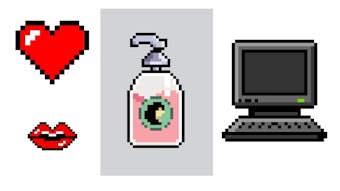
Editor's note: The "Words from Wiechers" series considers many lessons the cosmetics R&D industry can learn from the late Johann Wiechers, Ph.D. He was a critical thinker, adviser, colleague and leader in the industry until his unexpected passing. Presenting Wiechers's insights is IFSCC Education Chair Anthony J. O'Lenick, Jr.
This month, we review chapter 19, "Dancing to the Dollar," in Wiechers's Memories of a Cosmetically Disturbed Mind. In this chapter, Wiechers wrestles with the differences between pharma and cosmetic business, a topic he discussed quite often.
A Nose for Numbers?
He states:
So, why are you working in our industry? Are you attracted by its broad knowledge base and, maybe, the fact that in contrast to pharmacy, you can even innovate without too much knowledge? Or is it your “nose” for commercial success? You will have learned by now that the cosmetic industry is one of the few that continuously grows at a rate well above inflation.
For instance, even in the turbulent times of 2002, the share price of L’Oréal fell by only 10%. This was mirrored by Beiersdorf, Unilever and Procter & Gamble, [all of which] demonstrated similar share price fluctuations. Avon was the real star in 2002, with a 15% increase in share price. The nice thing about our industry is that our customers even love us in the current economic climate for that little bit of hope and self-esteem we offer.
So, knowledge and a nose for commercial success, i.e., a nose for raising money, are important to make it in our industry. But are they not like water and fire? Should we be square circles to be successful? After all, knowledge and money are completely different, so how can they be combined within a single individual?
Let’s focus on the differences for a while. Knowledge is something that you can share but that you never lose. You can listen to what people tell you at scientific conferences and congresses and decide to take it on board or not.
Perhaps the only area where I regularly disagree with Wiechers is his belief that cosmetics and cosmetic companies are very much like pharmaceuticals and pharma companies, respectively.
If a cosmetic product claims to impart a proper cosmetic effect that it, in fact, delivers and this available as a discretionary purchase, there is an actual benefit to the consumer.
The Difference is Discretionary
Cosmetic claims are different and have to be. Cosmetic actives are materials that provide a cosmetic effect of altering appearance, not disease. Both have requirements to be effective but do different things.
Additionally, cosmetic businesses are fundamentally different from pharma due to the different needs and expectations of consumers. Drugs are required to maintain life and health. No one buys drugs designed to treat disease because they want to, they buy drugs because they have to. The benefit of a drug is required. The purchase is not discretionary.
Compare this with cosmetic products. They do not treat disease, they alter appearance. The effect is not eliminating disease but instead providing the user with a feeling that their appearance is improved, in turn increasing their self-esteem. If a cosmetic product claims to impart a proper cosmetic effect that it, in fact, delivers and this available as a discretionary purchase, there is an actual benefit to the consumer. Furthermore, if that benefit is felt to be sufficient to justify the expense, the consumer buys again. It is simple economics, which does not apply to drugs.
Another interesting consideration is that the use of cosmetic products is independent of the economic cycle. In times of plenty, people buy cosmetics to celebrate and to feel good. When economic times are bad, consumers buy cosmetics to lighten the blow of a bad economy. The product types might change but purchases continue.
The Lesson
In summary, cosmetic and pharma chemists provide different effects in different ways but both make use of science to maximize the effect and provide consumer benefits. Their businesses are quite different but both are legitimate. Perhaps this is an area where we need more communication and the exchange of ideas; in addition to social discussions on cosmetic ethics.










